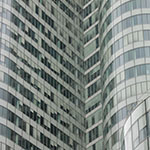Euroacademia Conferences
 Europe Inside-Out: Europe and Europeanness Exposed to Plural Observers (9th Edition) April 24 - 25, 2020
Europe Inside-Out: Europe and Europeanness Exposed to Plural Observers (9th Edition) April 24 - 25, 2020 Identities and Identifications: Politicized Uses of Collective Identities (9th Edition) June 12 - 13, 2020
Identities and Identifications: Politicized Uses of Collective Identities (9th Edition) June 12 - 13, 2020 8th Forum of Critical Studies: Asking Big Questions Again January 24 - 25, 2020
8th Forum of Critical Studies: Asking Big Questions Again January 24 - 25, 2020 Re-Inventing Eastern Europe (7th Edition) December 13 - 14, 2019
Re-Inventing Eastern Europe (7th Edition) December 13 - 14, 2019 The European Union and the Politicization of Europe (8th Edition) October 25 - 26, 2019
The European Union and the Politicization of Europe (8th Edition) October 25 - 26, 2019 Identities and Identifications: Politicized Uses of Collective Identities (8th Edition) June 28 - 29, 2019
Identities and Identifications: Politicized Uses of Collective Identities (8th Edition) June 28 - 29, 2019 The European Union and the Politicization of Europe (7th Edition) January 25 - 26, 2019
The European Union and the Politicization of Europe (7th Edition) January 25 - 26, 2019 7th Forum of Critical Studies: Asking Big Questions Again November 23 - 24, 2018
7th Forum of Critical Studies: Asking Big Questions Again November 23 - 24, 2018 Europe Inside-Out: Europe and Europeanness Exposed to Plural Observers (8th Edition) September 28 - 30, 2018
Europe Inside-Out: Europe and Europeanness Exposed to Plural Observers (8th Edition) September 28 - 30, 2018 Identities and Identifications: Politicized Uses of Collective Identities (7th Edition) June 14 - 15, 2018
Identities and Identifications: Politicized Uses of Collective Identities (7th Edition) June 14 - 15, 2018
Presence, Absence, Distance and the Identity Manipulations – Berlin After the Wall
-
-

-
Presentation speakers
- Natalia Skoczylas, University of Maria Sklodowska Curie, Lublin
Abstract:
In my paper, I will tackle the issue of how public space and architecture are means, tools, witnesses and strong forms of expression in the political and social struggle. Just a few very strong but special examples show the powers, sides, interests that express many interesting and actual phenomena nowadays. First of all – the troublesome legacy of totalitarian regimes meets conditions of capitalism, new comfort of commuting and new conceptions of the city space. An exemplification becomes reflected in the history of Tempelhof airport, which still is a battlefield of intentions and ideas. Secondly – the absence is being strongly expressed by different architectural interventions and decisions. The Stolpersteine, the memories of absent tenement houses on the walls, the Wall itself being discretely signalized all along the city – these architectural interventions deal with a complex idea of presence and absence in an inspiring, refreshing way: combining grieving, forgiveness, forgetfulness, commemoration, change, preservation, hope, democracy, openness, tolerance and many other social, philosophical, ethical, human aspects. Finally, the distance and the battle for what is/should be absent is visible in the examples of Stadtschloss, a fake historical building replacing inconvenient historical building (DDR Parlament), sharing the fate of many other remains of the history of Eastern Germany, which is not a comfortable narration of a modern, capitalistic, democratic nation. This way I would like to signalize a set of problems that are not only universal for any public space formation/change, but also – to raise a debate about how past should be seen in post-Soviet countries. As the controversies are still present, and the perception is mostly negative, who has the right to decide on the ways history will be remembered?
-
Related Presentations

Old Prejudice vs. New Paradigms: Eastern Europe – From the Frying Pan into the Fire? The Key to Stable Economy & Prosperity
- Gerhard Eichweber

Production Networks in Europe: A Natural Experiment of the EU Enlargement to the East
- Inmaculada Martínez-Zarzoso
- Anca M. Voicu
- Martina Vidovic
















